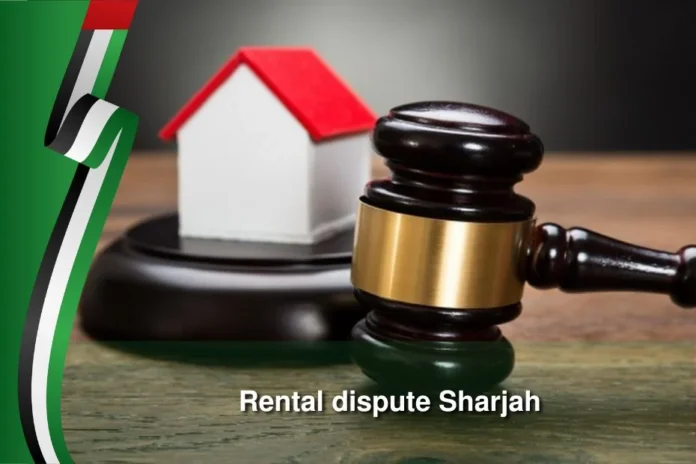UAE: Can Tenants File Complaints if Rent Hikes Violate Rules in Sharjah?
When a landlord slides a notice under the door of your apartment, or, as is frequently the case, sends you an email that has no precursor and states, “effective immediately, your rent will be increased,” it is unwelcome news. You read the fine print in disbelief, feeling a deep sense of betrayal, as you contemplate the rising cost of living in one of the most sought-after areas in the UAE, or whether you are in a position to respond. Sharjah, with its vibrant souks, beautiful corniches, affordability, and maybe even a little better than, get this, Dubai, attracts thousands of renters. But then, rent increase notifications happen, and the exhilaration fades, and is replaced with some annoyances, and who knows, maybe that is a violation? Probably not, but tenants living in Sharjah are not completely helpless against landlords.
This article explains everything you need to know about rent increase regulations in Sharjah, flags the indicators that scream, “violation,” and explains how to file a complaint if necessary. It is important to know your rights irrespective of whether you have lived in Sharjah for decades or just arrived, as this will keep the rental process fair and stress-free.

Sharjah’s Rent Rules: The Basics Every Tenant Should Know
In Sharjah, regulations are implemented by the Sharjah Municipality and Rent Dispute Settlement Centre (RDSC). These authorities oversee everything from contracts to disputes unlike some other places where the market is allowed run free. Landlords do not have total discretion over increasing rent, as they might in some other locations. Significant regulation on property rental can be traced to Federal Decree-Law No. 26 of 2007 on tenancy relations and a relevant but higher level of regulation by the emirate to which Sharjah applies more rigorously.
For starters, any tenancy contract must be registered through Tawtheeq, the online municipal registry system. If tenancy contracts are not registered through Tawtheeq, the landlord and tenant are exposed to fines starting at AED 5,000. Once registered, the tenancy contract will bind the landlord and tenant for a period of not less than a year, and the rental value may not be increased during this time, unless both the landlord and tenant give their agreement in writing.
Hikes only kick in after the lease ends, and even then, they are capped. Sharjah follows a “rent index” published twice a year by the municipality, which pegs increases to market rates. Typically, that’s 5% to 20%, depending on how your current rent stacks up against the area’s average. For example, if your place rents for way below market, expect a bigger nudge, up to 20%. But if it’s spot-on or higher, it might stay flat or creep by just 5%. Landlords have to notify you in writing at least 90 days before renewal, spelling out the exact amount and why.
These rules aren’t just suggestions; they are enforceable. As of late 2025, with Sharjah’s rental market cooling slightly post-pandemic boom, the latest index (released in September) shows averages hovering around AED 40-60 per square foot for apartments in Al Nahda or Al Majaz. Check the Tawtheeq portal for the freshest numbers; it’s public and updated regularly.
Spotting a Shady Rent Hike: Common Violations to Watch For
Not every increase spells trouble, but plenty do. Landlords get creative sometimes, testing how much tenants will swallow before speaking up. Here’s what crosses the line:
Timing Traps: Proposing a hike mid-contract? Illegal. It has to wait until renewal, and even then, that 90-day heads-up is non-negotiable. Seen a notice drop with 30 days to spare? Flag it.
Over-the-Top Amounts: If the jump exceeds the rent index, say, you are at market rate, but they demand 15%, it’s a no-go. The RDSC uses the index as gospel, so pull that report and compare.
No Justification or Notice: Vague emails like “rising costs” won’t cut it. They need specifics tied to the index, plus proof of Tawtheeq registration. Unsigned or verbal hikes? Straight violation.
Retaliation Plays: Jacking rent because you reported a leaky roof or asked for repairs? That’s discriminatory and hits federal anti-retaliation clauses hard.
Real talk: In 2024 alone, RDSC handled over 10,000 cases, with about 30% tied to improper increases. Tenants won two-thirds of those, often getting hikes rolled back or compensated. If your gut says it’s off, it probably is, don’t second-guess.
Your Playbook: How to File a Complaint Against an Unfair Hike
Good news: Filing isn’t a nightmare of red tape. Sharjah’s system is tenant-friendly, designed for quick resolutions. Here’s the step-by-step, no fluff.
Gather Your Arsenal: Start with your Tawtheeq-registered contract, the hike notice, rent payment receipts, and the latest rent index (download from sharjah.gov.ae). Photos of any ignored maintenance issues? Toss those in if retaliations in play.
Hit Up the RDSC: Head to their main office in Al Hisn Avenue, or file online via the RDSC portal (rdsc.gov.ae). It’s free for tenants, and you can submit in Arabic or English. Fill out the complaint form, basic details like your info, landlord’s, property address, and a clear rundown of the violation. Attach scans of everything.
Pay the Fee (If Any): Tenants pay nothing upfront, but if you lose, a small admin fee might apply later. Landlords cover their side.
The Waiting Game: Expect an acknowledgment within 48 hours. Hearings happen within 15 days, often virtual via Zoom for convenience. Both sides present, keep it factual, no drama. An adjudicator (think neutral referee) rules on the spot or within a week.
Enforce the Win: If you prevail, the RDSC issues an executable order. Non-compliant landlords face municipality enforcement, including fines up to AED 20,000 or even eviction threats against them.
Pro tip: If it’s urgent (like they are demanding payment now), request an interim freeze on the hike during proceedings. Most cases wrap in under a month, way faster than court.
What Happens Next? Outcomes and Landlord Pushback
Winning feels sweet, but let’s cover the full picture. RDSC decisions are binding, a 90% compliance rate means landlords rarely drag their feet. You might see the hike scrapped entirely, reduced to index levels, or delayed. In extreme cases, like repeated violations, the landlord could lose deposit rights or face blacklisting on Tawtheeq.
Landlords aren’t voiceless, though. They can appeal within 15 days to the Court of First Instance, but that’s rare, costs them AED 5,000 plus legal fees, and success rates hover at 20%. As a tenant, stick to your story with evidence, and you’ll hold strong.
One caveat: If your contract has an arbitration clause, that might route things differently, but RDSC still trumps for rent-specific beefs.
Smart Moves: Preventing Rent Drama Before It Starts
Complaints work, but dodging them saves headaches. Negotiate caps into your next lease, say, 7% max tied to the index. Renew early to lock rates before markets shift. And always, always register via Tawtheeq day one; it protects everyone.
Keep tabs on municipality announcements. Sharjah’s pushing digital tools in 2025, like an app for index alerts. Join expat forums or the Sharjah Tenants Association for real-time chatter on trends. Knowledge is your best last resort armor.
Wrapping It Up
A balanced rental market works for tenants by providing affordable homes and for owners with reasonable returns on their investments. However, when increases especially become undue (in other words excessive), yes, tenants can (and should) file complaints with the RDSC. It is accessible, will work, and clears the playing field consistently and quickly. With all of this in mind, and our rules, you can establish the problems early, take action quickly, and have a smooth chapter of “Sharjah. ” Next time the appropriate notice comes in you can take it easy, you have the means to take control to complete the rental agreement in a timely manor. Start today by checking out Tawtheeq, staying indexed, and rented.









